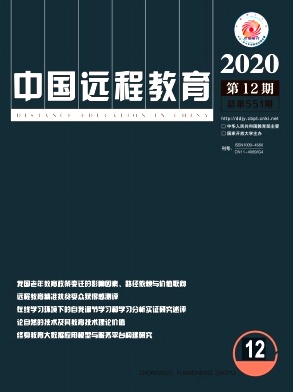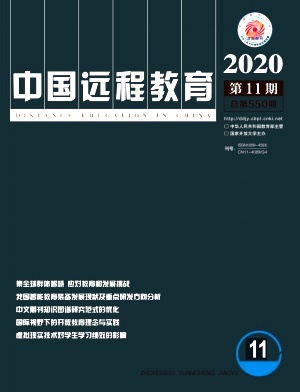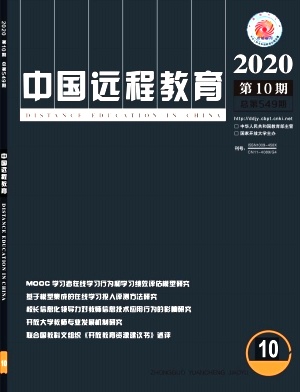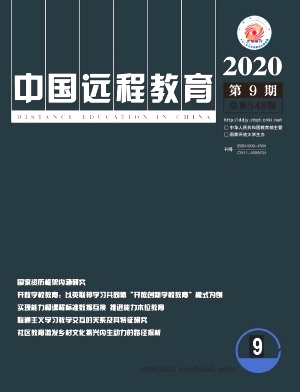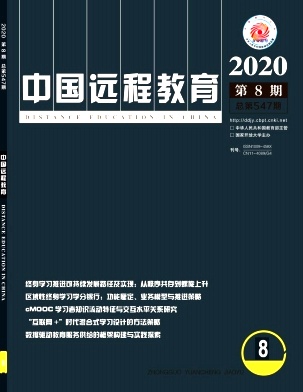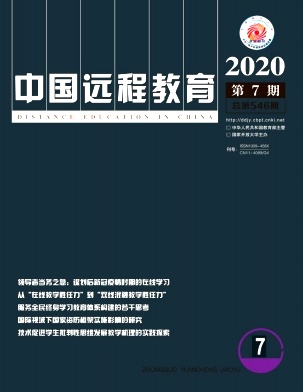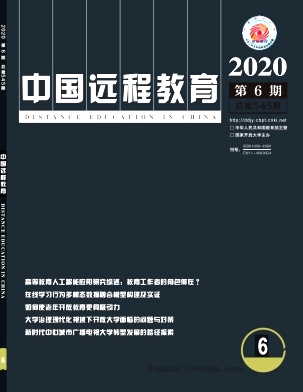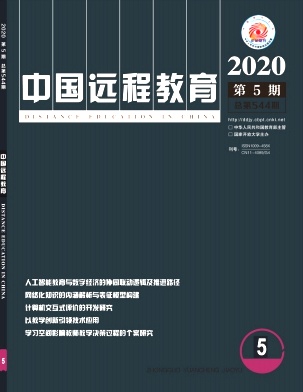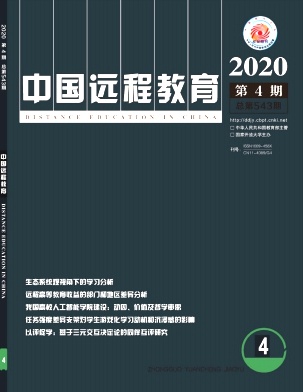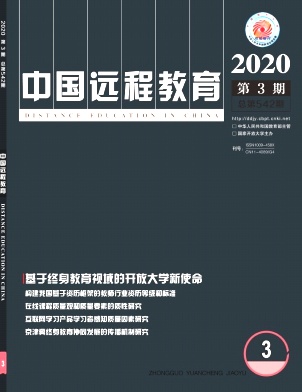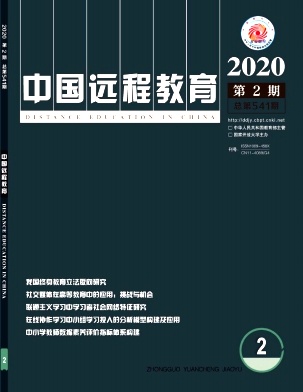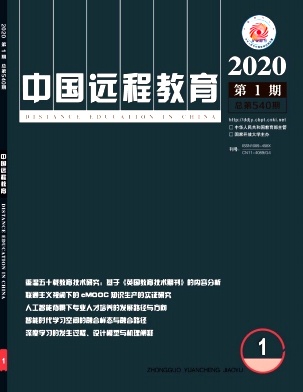
- Using CiteSpace to analyze Chinese journal publications: an optimized research paradigm
- The development of intelligent education equipment in China: status quo and directions for future R&D
- Worldwide wisdom of the crowd in education and development
- Reviewing the philosophy and practice of open education: an international perspective
- Reflection on openness in education: its historical evolution in the West
- A study of the relationship between university students' early-rising’ and ‘book-borrowing’
behaviours and their learning performance - The impact of virtual reality technology on learning performance: a meta-analysis of 59 experiments
and quasi-experiments - Factors influencing learning performance on online learning platforms: a user-experience perspective
- Abstracts
- Contents
- Towards a model for evaluating students' online learning behaviors and learning performance
- Evaluation of online learning engagement based on model integration
- Promoting teachers' IT skills in the USA: strategies and implications
- The impact of the principal's IT leadership on teachers' IT use: a meta-analysis of 42 empirical
studies - Teacher professional development mechanism in the Open University of China from the perspective
of Giddens’ Structuration Theory - Evaluation of UNESCO's Recommendation concerning Open Educational Resources (OER)
- Integration of vocational education resources in Germany from a symbiotic perspective: practices
and implications - Mobile learning in higher vocational education institutions
- Abstracts
- Contents
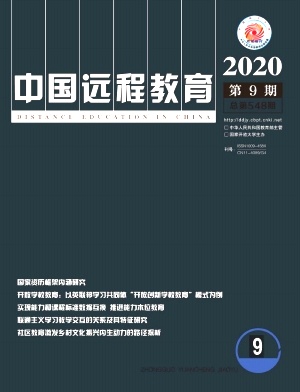
- Clarifying the connotations of national qualifications framework: a textual analysis of multiple
national/regional qualifications frameworks - German Qualifications Framework for Lifelong Learning: features and implications
- Open schooling: the case of COL’s Open and Innovative Schooling (OIS) model
- Aligning course content and competency standards to promote competency-based education:
interpreting IMS Competencies and Academic Standards Exchange Specification - Using adapted RFM and GMDH algorithms to predict MOOC user attrition rate
- Do social media impact learning performance positively or negatively?
- Instructional interactions in connectivist learning
- Research on smart learning in China in the past decade: evolutions and trends
- Developing community education to revitalize rural culture
- Abstracts
- Contents
- Lifelong learning for sustainable development: from coexistence to upward spiral
- Regional credit banks for lifelong learning: functions, service models and implementation strategies
- The relationship between the knowledge flow characteristics and the interaction level of
cMOOC learners - Designing blended learning in the Internet plus era
- A contextualization - generalization - recontextualization cycle in open and distance education
theory building and application: a cultural perspective - Framework design and practice of data-driven education service: the service triangle model
- ICT leadership in schools from the perspective of smart campus
- Book review: Online Learning: the Student Experience
- A QCA approach to cross-sector professional development of teachers from a perspective of
Community of Learning - Abstracts
- Contents

- The Leadership imperative: back to the future after the COVID-19 pandemic
- From online teaching competency to integration of both online and offline teaching competency
- Towards an inclusive lifelong learning system: a service and integration-based perspective
- Impact of national qualification framework implementation from an international perspective
- Evolution of adaptive learning in American higher education institutions from the perspective of
technological culture and philosophy - Technology enhanced critical thinking instruction: practical considerations
- The MOOC Framework: a metacognitive view
- Computational Thinking Competencies and future developments: interpretation of and implications
from ISTE Standards for Educators - Community education satisfaction evaluation model and its application
- Abstracts
- Content
Contents:
- Systematic review of research on artificial intelligence applications in higher education: where are the educators?
- Constructing and verifying a model of integrating multimodal data from online learning behaviors
- Investigating the interrelationship between social network interaction, emotional characteristics and learning outcomes
- MOOCs and teacher professional development: big data-driven insights into active ageing
- Open education for elderly population: lessons learnt from the Open University of Japan
- Chinese open university's challenges and solutions from the perspective of modern university governance
- Transforming open universities of Chinese key cities in the new age
- Abstracts
- Contents
Contents:
- Synergistic interplay between AI in Education and digital economy: its logic and promotion strategies
- Conceptualizing networked knowledge and constructing its representation model
- Quantifying cognitive engagement in cloud-based learning space
- Development of computer-based interactive assessment: the case of science inquiry
- Undergraduate student engagement in general education courses: the case of Qingdao Agriculture University
- Putting the pedagogic horse in front of the technology cart
- Reconstructing and measuring social presence at teacher professional development workshops
- The impact of learning space on teachers' instructional decision-making: a case study of East
China Normal University - Abstracts
- Contents
